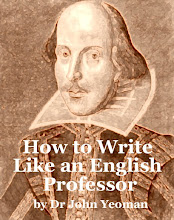
I've spent most of the week in Provence. Rain. More rain in one day than in the English famine year of 1596. I sheltered, dripping, in a cafe beside the Pope's Palace at Avignon and ate boiled potatoes in a tourist's aoili, as bland as washbrew porage. And I devoured Religio Medici on my e-book reader. Browne's spry memento mori added an ironic gloss to that great sarcophagus of true misery towering above me, the fortress founded by four schismatic Popes in the 14th century.
I love my Sony ebook reader. It holds more than 1200 titles and academic papers. Given a few memory cards, I could carry half the Bodleian library in my pocket. And it's no bigger than a sandwich (English style). That's true wisdom. I commend it to the Popes.
I love my Sony ebook reader. It holds more than 1200 titles and academic papers. Given a few memory cards, I could carry half the Bodleian library in my pocket. And it's no bigger than a sandwich (English style). That's true wisdom. I commend it to the Popes.

Surely not? Boiled potatoes in Avignon?
ReplyDeleteThe joy of e-books is that you can get all kinda stuff free off Gutenberg, etc. No need to buy Don Quixote. What a saving!
ReplyDeleteYou may enjoy an even greater saving by not obtaining Don Quixote. Frankly, it's much over-rated, although it makes an excellent doorstop. Far better to read Eco's The Name of the Rose. You can tear out every alternate chapter and miss nothing. Soak the pages thus extracted in a light cooking oil and they make a splendid firestarter for the incinerator in which you can then burn Don Quixote.
ReplyDelete